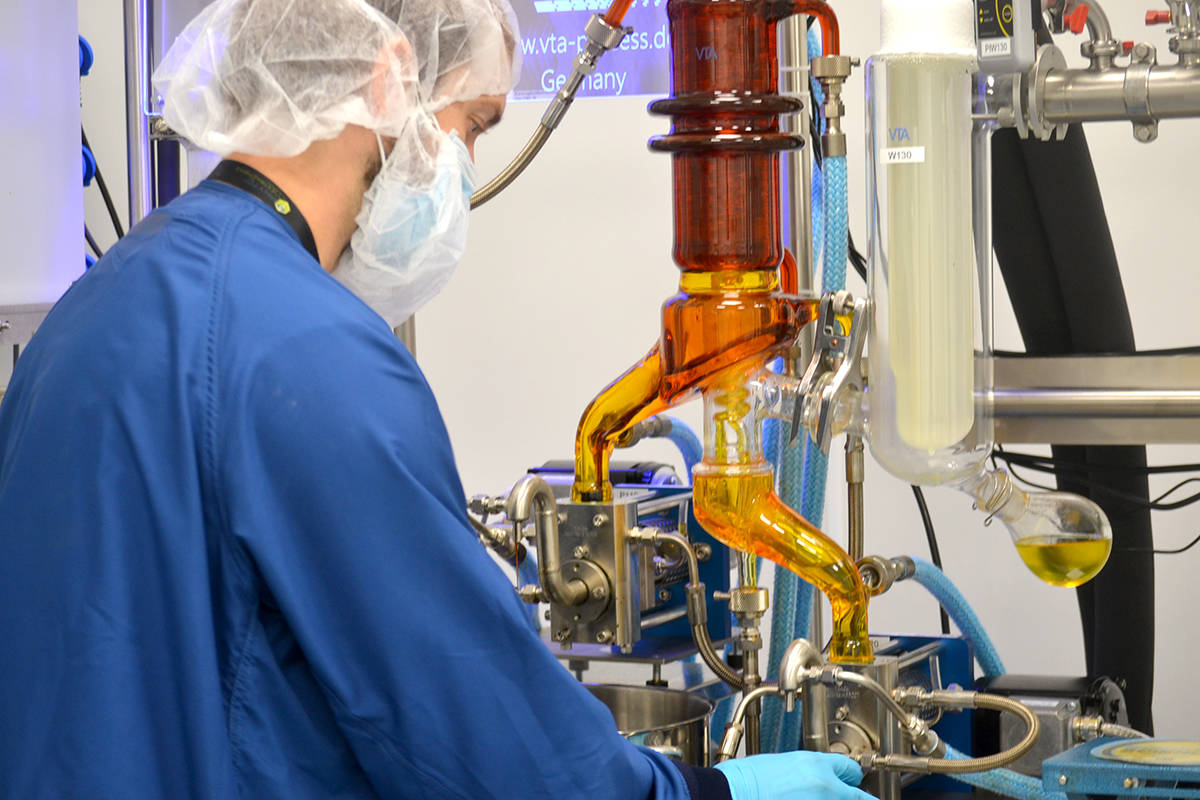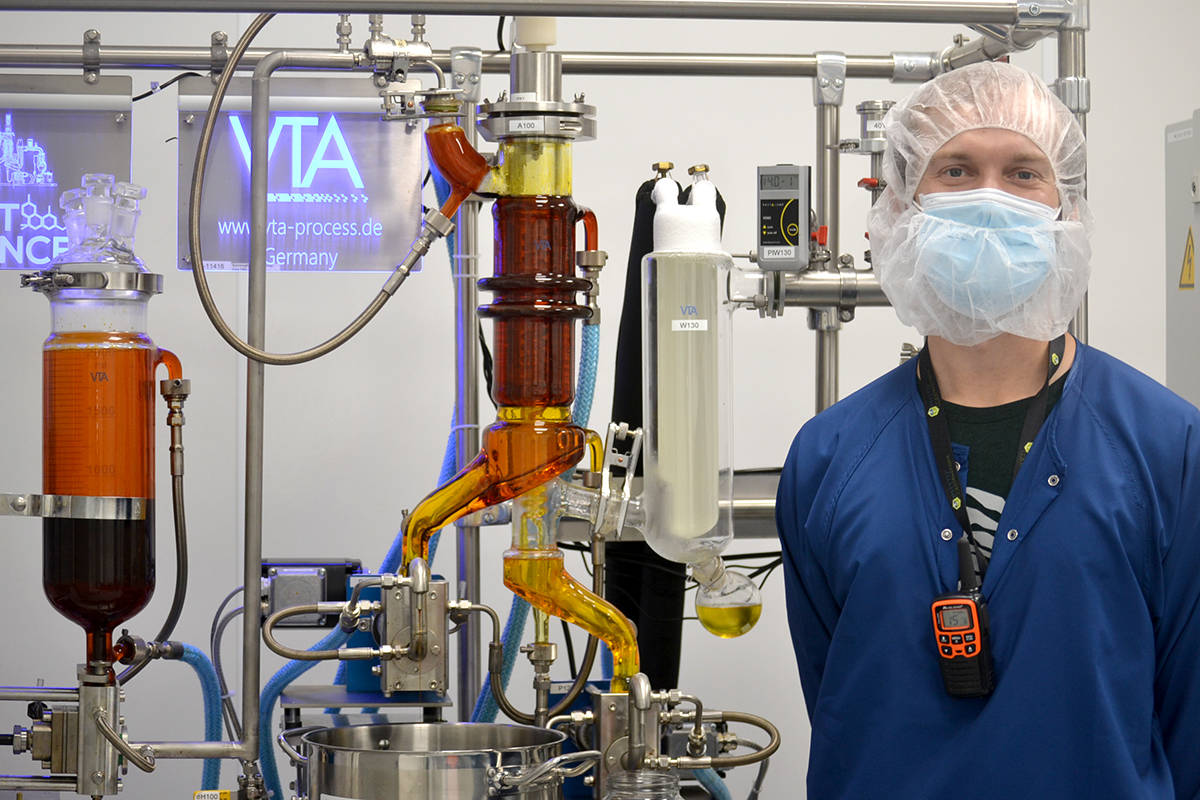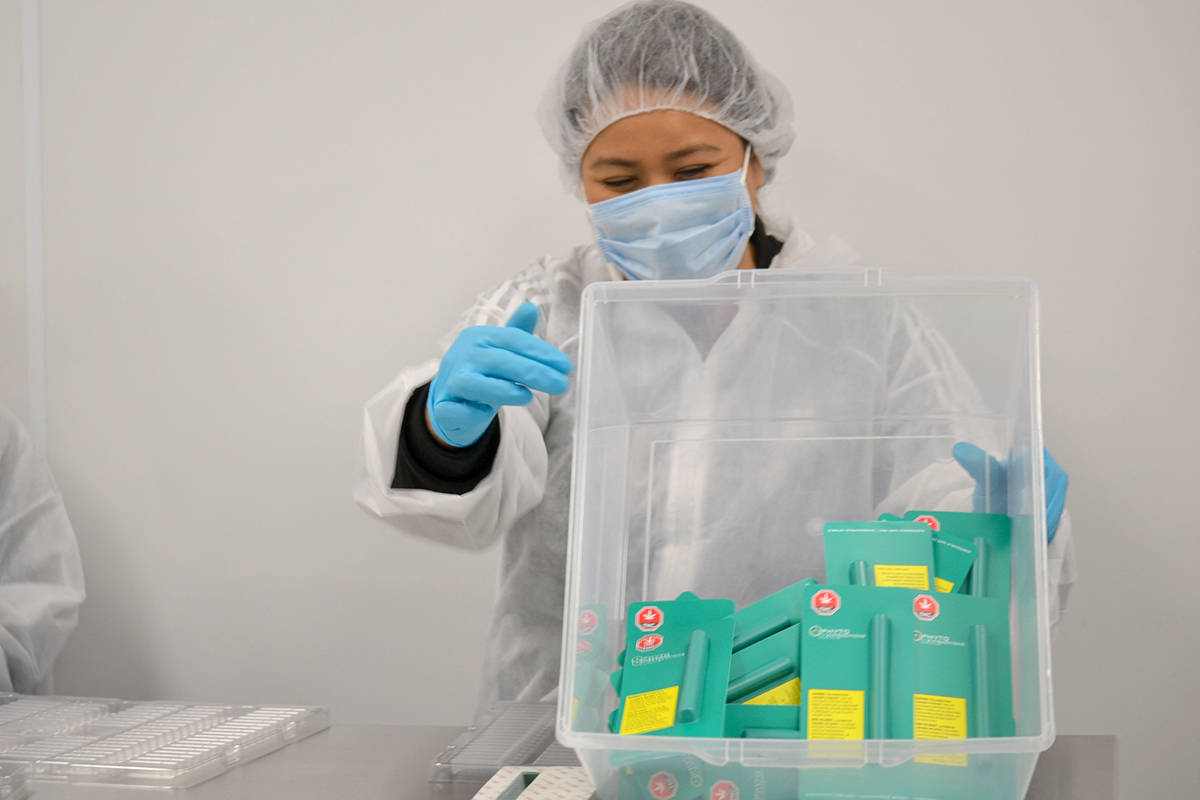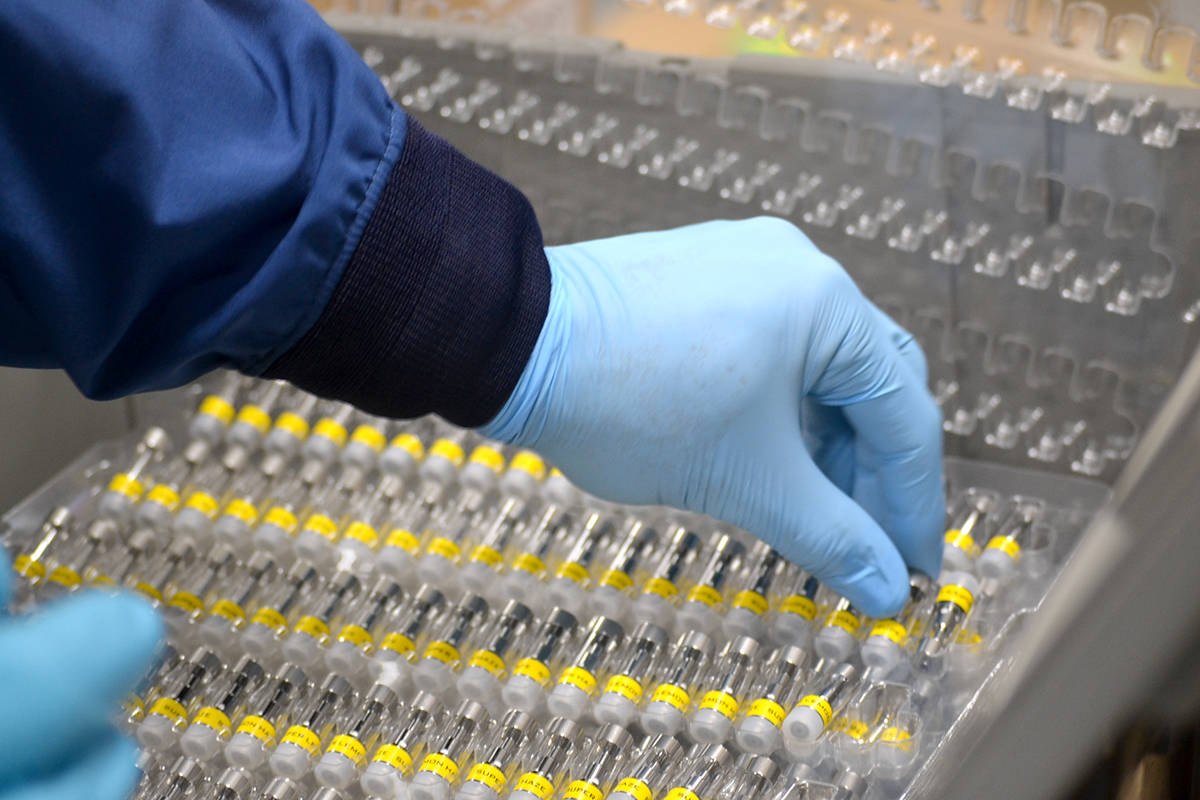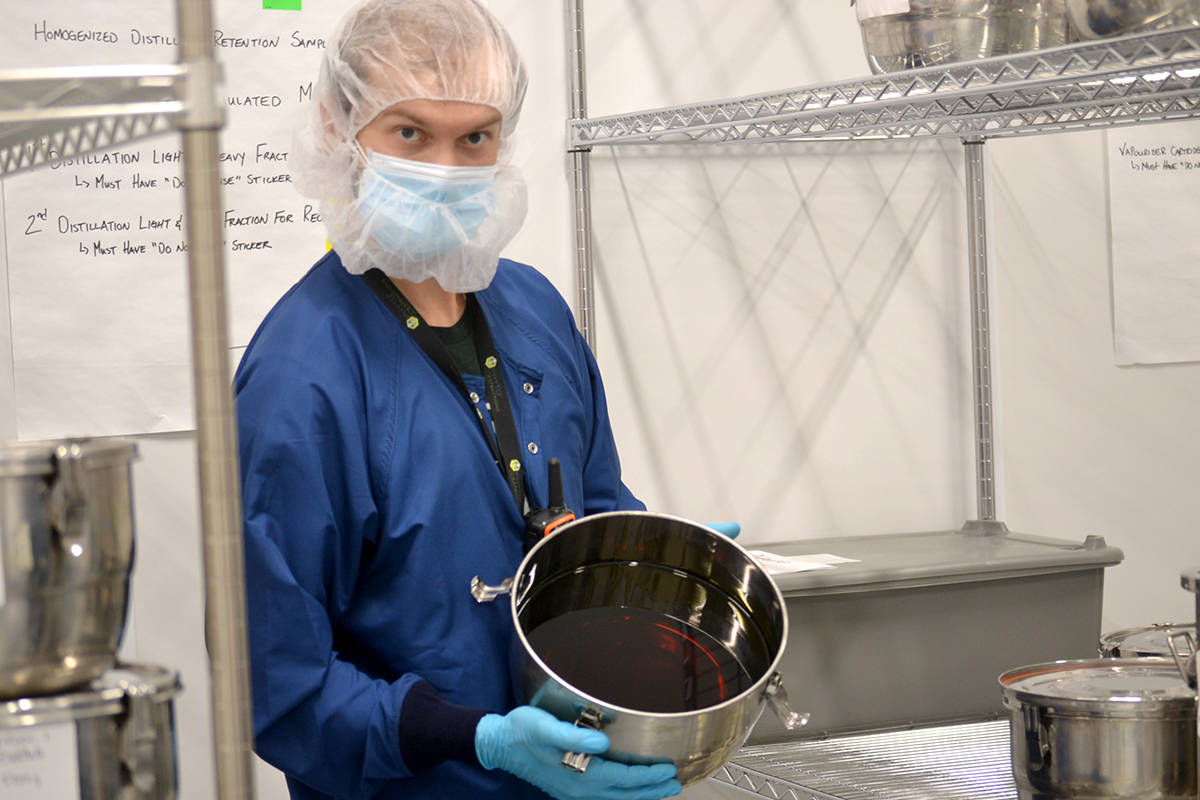In B.C.’s Lower Mainland, the suburbs saw a surge in cannabis production with operations like Canopy Growth Corp opening up amid legalization.
Since then, companies like Adastra Lab Holdings Ltd. have become some of the few to focus solely on a different side of the market: hydrocarbon extraction.
Distillate is a cannabis concentrate that is harvested through an intense hydrocarbon freezing process – which is then commonly consumed using vaporizing devices or used in cannabinoid isolates.
Andrew Hale, co-founder and CEO of the company, said hydrocarbon products are an under-served and increasingly popular area of the market, which requires a highly scientific process and complex machinery to create.
“Newer smokers are more comfortable with extraction products because the dosing is easier to control,” Hale explained. “Lots of folks who are older are starting to go after concentrates…”
Adastra employees shares a 13,000-sq.ft. lab facility with Chemia Analytics on 275th Street in the Gloucester Industrial Park where they employee roughly 25 technicians, fillers and scientists.
Adastra focuses on producing Shatter, a brittle, amber-coloured concentrate.
Hale came to the industry after numerous bouts with cancer, leading him to use cannabis products to help during chemotherapy.
He noted that the company’s’s cannabis flower supply comes from Pure Sun Farms in Delta – Adastra does not do any growing.
Adastra’s founder said the cannabis grower market is saturated, explaining that opportunities in “under-utilized markets” such as hydrocarbon products are better to carve out a profitable niche business.
With the installation of new systems, concentrate products such as wax, budder and THCA Diamonds are now being added to Adastra’s output.
The process sees cannabis flowers ground to powder, washed, and then baked inside ovens at 150 degrees C.
Vape cartridges that are filled by a team that assembles the packaging for the Fido Extraction brand.
Once packaged, Adastra’s product is shipped to gaming and licence commissions for distribution to retailers, particularly in Alberta and Ontario.
Hale said Adastra has been working with the Township of Langley to ensure safety protocols and codes are up to standard, given the use of ethanol gases to create concentrate products.
Hale explained that spot testing in compliance with Health Canada regulations, measuring potency content, and scanning for metal materials, which cannabis plants can contain traces of during growth, will be carried out by Chemia Analytics.
He believes they will be first cannabis company in Lower Mainland to offer these tests in-house.
“We’ve gone to great pains to make everything safe, starting by being located in the industrial park. It’s the right place for us and we do a lot for odor controls so people standing outside will think ‘that’s a cannabis place?’ ”
In addition to resins, the company is also moving into the edibles and beverages market by developing a soluble cannabis powder project.
It’s been two years since cannabis was legalized in Canada.
While Hale believes the Langley area is at the forefront of national growing and production, it is still lacking in retail options.
”People are going to downtown Vancouver or White Rock to purchase their product. It’s crazy not be be doing retail here yet,” he said. “I know the township is looking at applications right now, but I think they can easily allow them to be in the right place away from schools.”
The Township of Langley (TOL) received a total of 20 commercial cannabis store applications, with almost half of those requests located in Aldergrove.
All applications, which were received before Aug. 31, will now be presented together, by area, at a future meeting.
Council is expected to start granting permit approvals in the fall, allowing one retail cannabis shop per neighbourhood.

